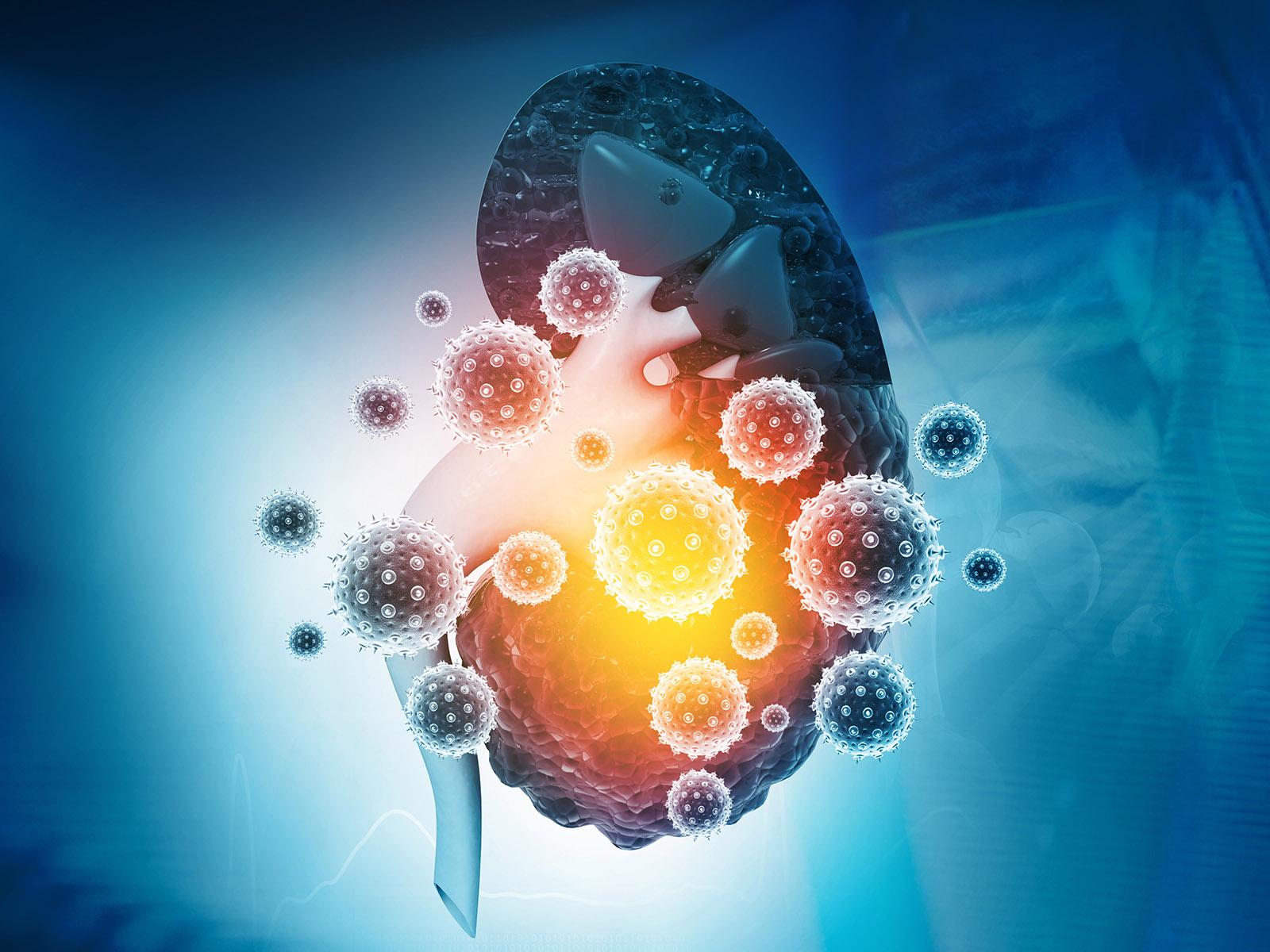Urine Proteomics Reveal Acute Kidney Injury as a Result of COVID-19

Acute Kidney Injury (AKI) is a major complication associated with COVID-19 occurring in up to 76% of patients in the ICU. Mortality is >10 times higher for those who develop AKI. PNNL characterized protein signatures indicative of COVID-19-associated AKI in ICU patients.
(Image courtesy of Adam C. Swensen | Pacific Northwest National Laboratory)
The Science
Acute Kidney Injury (AKI) is a major complication associated with COVID-19 and it develops in up to 76% of patients who are fighting the virus in Intensive Care Units (ICU). But until now, triggers of AKI development and the signatures associated with it in COVID-19 patients were unknown. PNNL researchers analyzed proteins shed in urine samples of patients with COVID-19. Comparing data from those patients to other groups: patients with COVID-19 but not with AKI and healthy people, researchers discovered several mechanistic signatures. The signatures give clues into biological system changes that lead to development of AKI.
The Impact
AKI associated with COVID-19 is a leading predictor for mortality in patients with the virus. But because COVID-19 presents differently across the population, it’s difficult to determine those who are at higher risk to develop follow-on complications such as AKI. In this study, researchers used proteomics to discover several unregulated biological pathways in patients who develop AKI, which could be useful in determining the risk or severity of AKI in patients with early symptoms of COVID-19. The knowledge could also allow for preemptive or alternate treatment courses and decrease the mortality rate associated with the combination. In addition, researchers detected other tissue-specific proteins that can be used to measure damage in distant organs such as the heart, lungs, esophagus, and stomach.
Summary
The mortality rate of COVID-19 patients who develop AKI in the ICU is 10 times greater than for those who do not develop it. But until now, the differences between patients who did and did not develop AKI were unknown. Researchers used a non-invasive sample analysis to measure proteins shed in the urine. They discovered mechanistic insights into how the virus causes changes in patients who develop AKI. Using these signatures, they can determine the severity of AKI, or risk of developing it, in early onset patients, allowing for earlier use of targeted treatment strategies. The researchers also detected viral proteins from SARS-CoV-2, highlighting the level of damage that is occurring within the kidneys of severely ill patients. Other proteins with tissue-specific isoforms indicated distant tissue damage occurring in the heart, lungs, stomach, and esophagus. These could be useful in determining where patients may need additional monitoring and follow-up treatment.
Funding
This study was supported by the following: the Barnes-Jewish Hospital Foundation; the Siteman Cancer Center grant P30 CA091842 from the National Cancer Institute of the National Institutes of Health; and the Washington University Institute of Clinical and Translational Sciences grant UL1TR002345 from the National Center for Advancing Translational Sciences of the National Institutes of Health. George M. O’Brien Center of the Johns Hopkins University performed the kidney injury biomarker assays (grant #P30DK079310). The proteomics work is supported by NIH Common Fund, through the Office of Strategic Coordination/Office of the NIH Director under award UG3HL145593, and NIH grant U01DK124020.
Published: January 28, 2022
Ye, Y., Swensen, A.C. et al. “A Pilot Study of Urine Proteomics in COVID-19-Associated Acute Kidney Injury.” Kidney Int Rep 6, 3064-3069, doi:10.1016/j.ekir.2021.09.010 (2021).